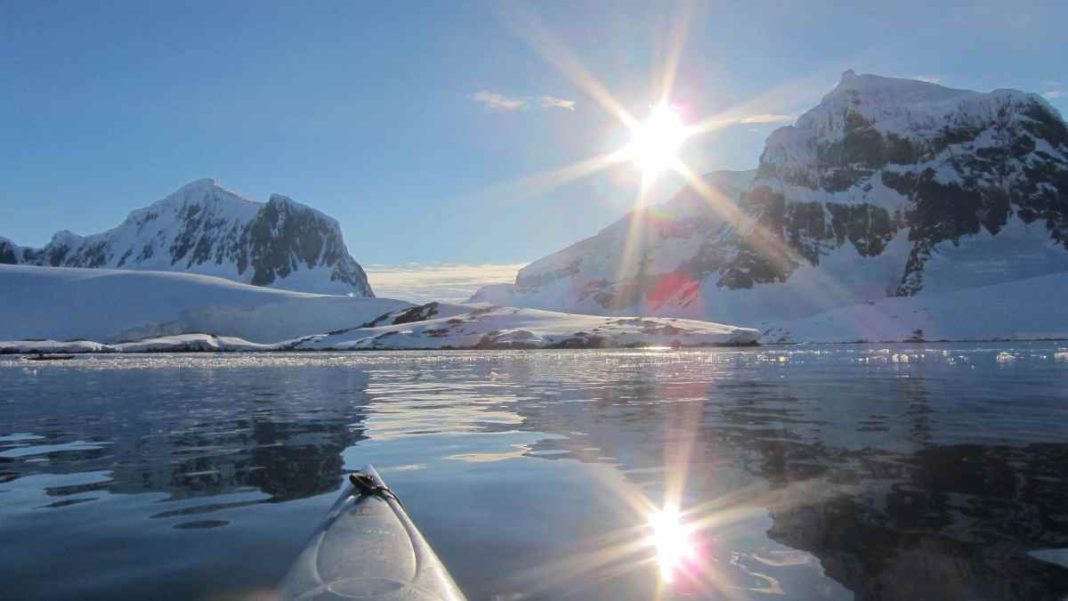ANTARCTICA: The world’s southernmost continent is grappling with an alarming surge in climate extremes that has pushed its already fragile ecosystem to the brink. Unprecedented temperature spikes, driven by a potent “atmospheric river” originating from Australia, have been recorded, causing temperatures to soar up to 38.5 degrees Celsius above normal. Coupled with a historic drop in sea ice levels, experts are sounding the alarm on the dire consequences of this environmental crisis.
In a study published in Frontiers in Environmental Science, researchers from various international institutions, including the British Antarctic Survey and the Antarctic Research Centre at Australia’s Victoria University of Wellington, have painted a bleak picture of the current state of Antarctica. The study points to escalating global temperatures, largely propelled by the burning of fossil fuels, as the driving force behind the continent’s heightened susceptibility to extreme events.
The Antarctic region’s sea ice has hit a record low, with the minimum summer ice cover plummeting below 2 million square kilometers for the first time since satellite monitoring commenced in 1978. This year, the situation further deteriorated, with the sea ice minimum dropping by a staggering 20% below the average of the past 40 years. Tim Naish, director of the Antarctic Research Centre, likened this loss to an area nearly ten times the size of New Zealand.
Caroline Holmes, a polar climate scientist at the British Antarctic Survey and co-author of the study, underscored the gravity of the situation, stating that the recovery of this lost ice would be a painstakingly slow process. “There’s no quick fix to replacing this ice,” she emphasized during a press briefing.
The dire scenario extends beyond the immediate impact on sea ice. Antarctica’s western end, particularly its peninsula, has experienced alarming ice sheet melt, potentially triggering massive sea level rises over the coming centuries. While the eastern side has witnessed sporadic ice gains, the overall outlook remains grim.
Martin Siegert, a glaciologist at the University of Exeter and co-author of the study, described the temperature surges as “absolutely astonishing.” He expressed deep concern over the fragile Antarctic environment, which is being severely tested by the increasing intensity and frequency of extreme events.
Scientists are unanimous in their warnings that if the current trend persists and efforts to curb emissions falter, the consequences will reverberate globally. From vanishing coastlines to an accelerated cycle of global warming due to the loss of sunlight-reflecting ice, the impact of Antarctica’s plight is poised to reshape the world as we know it.
Urgent action is paramount, as the very foundations of Antarctica’s ecosystem hang in the balance. The need for international cooperation to combat climate change has never been more pressing, with experts stressing that the fate of Antarctica serves as a stark reminder of the interconnectedness of our planet’s delicate ecosystems.
Also Read: Greenland’s Ice Sheet Vulnerability: Past Melting Raises Alarming Concerns for Global Sea Levels



